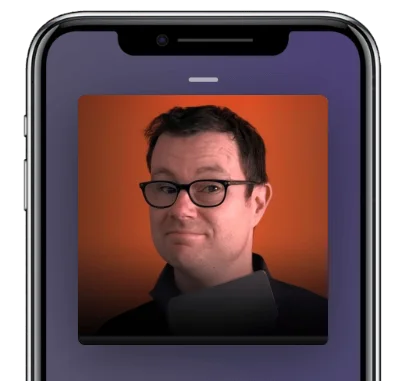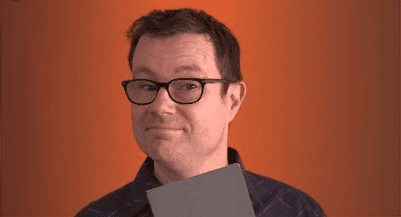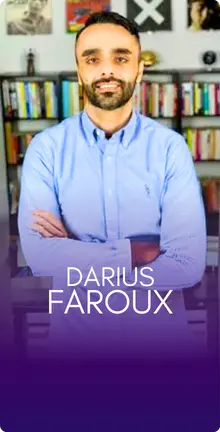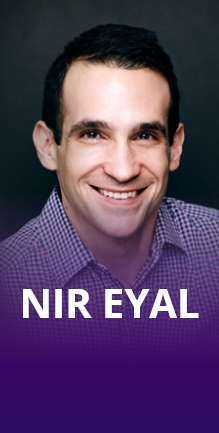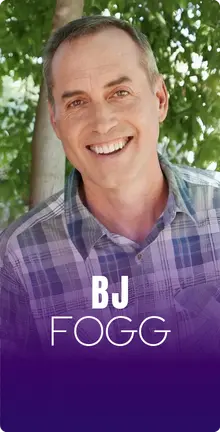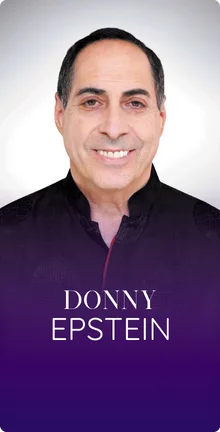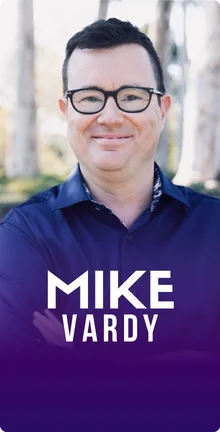In this Episode
- [00:39]Stephan introduces Mike Vardy, founder of The Productivityist, writer, productivity strategist, and the creator of the methodology and philosophy known as TimeCrafting.
- [06:20]Mike explains why creating themed days can still help you with productivity during this pandemic.
- [11:45]Mike shares his new-found skill during this pandemic, which is gardening and redesigning his home office.
- [17:00]Mike expounds on the idea of Will vs. Fear and how it can help time management.
- [23:20]Mike shares that one way of being productive is to find meaning and look deeper into things like reading the book Civil Disobedience.
- [28:24]Stephan shares the concept of external and internal by Donny Epstein.
- [34:57]Stephan shows his bracelet with a stamp that says “presence” on it and why it’s symbolic to him.
- [40:07]Mike shares a story on the power of habit about a gentleman with Alzheimer’s who found his way home on his own.
- [48:44]Mike and Stephan share how you can attach small habits to tasks to have a good start in being productive.
- [52:55]Visit Mike Vardy’s website productivityist.com to check on ways how to boost your productivity.
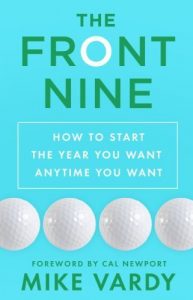
Thank you for joining. I’m Stephan Spencer, and this is my VP of strategy, David. Because this is Corona times, we have no childcare. I’m holding him right now while my wife is out. And I’m so excited to have with us today, Mike Vardy, who is known as the Productivityist and he has a podcast called A Productive Conversation, which I’ve been on and many other awesome people. And I had a coaching call with Mike yesterday, and he reminded me that World Productivity Day is tomorrow, and that’s today. So in honor of that. We thought we’d do a livestream and riff about what it means to be productive in these strange times, for example, holding a baby.
Thanks for having me. Exactly a very different scenario. I mean, here’s the interesting thing World Productivity Day is June 20, and the reason is that it’s the longest day of the year in the Northern Hemisphere because of the daylight hours, so that’s why. There is a bit of an ironic element when you’re calling it World Productivity Day. Number one, it’s Saturday. Number two, it’s the first day of summer. And one of the last things you probably think about when you think about summer is “you know what productivity and summer they go kind of hand-in-hand,” but it kind of presented an interesting opportunity. And when we chatted yesterday, he said, “What are you doing for World Productivity Day?” And I said, “Nothing, nothing planned.” And I did have elements planned to start as of last June 20, because I wanted to do something in particular related to when my book was coming out. It was supposed to come out this week, but COVID-19 and the current climate doesn’t allow me to travel from Canada to anywhere. So to put a book out right now, we kind of paused it. I was going to be doing like a big book deal around this and all that stuff, and instead, today’s productivity has been gardening for the most part. So there is a kind of productivity happening there, putting soil and growing some food, but there are lots of tips that people can take into account during times where there’s so much uncertainty. And I think today is a good day to talk about those things.
That’s awesome. And so you had shared a statistic with me I found quite fascinating because we’re both authors, and given that people aren’t traveling, and there’s so much disruption, and no childcare for a lot of folks and so forth, book sales are down. What was the number of decline in sales?
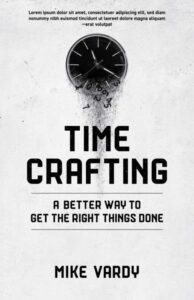
In particular, its business book sales are where I heard this, so it may not be like novels. I think novels actually might be fine because it’s a nice escape from what’s going on right now. But business book sales, a friend of mine shared with me that as of right now, business book sales are down 39%. And I think that has a lot to do with number one, so much uncertainty and flux around businesses, when you think about it, like you and I are used to working from home, we both have kids that are at home, so it’s a bit different to kind of manage and work with all that stuff although it’s an amazingly great time to get to connect with your kids on an ongoing basis. There’s always the great things that you can look at through it, but I think because there’s so much flux and people are worried, trying to get through and figure out and navigate these new waters, that reading a business book may be the last thing that they want to do.
Even podcasts to a degree or down, depending on the podcast because there are no commute times. I’m not sure about audiobooks, or any of that stuff. I know my friend, Laura Vanderkam, who I just interviewed for my podcast, she’s got a book coming out in July, and it’s going to be an ebook only, and it’s through a major publisher. So I think that some different publication strategies are happening, ebooks, and then you’ll eventually release the print version and things like that. I think right now, a lot of people are just dealing with the changes that they’re going through in their work and in their daily lives, and to pick up a business book to learn how to be more productive or any kind of business strategy book when the strategies could very well change. They’re shying away from it.
Yeah, and you mentioned that podcast listening is down for many of us podcasters, that’s true for me. My two podcasts – Get Yourself Optimized, it’s all about productivity, life hacking, biohacking, and all that so that’s down, and so is Marketing Speak, my other podcast, which is a bummer because I pour in just as much heart and soul into those podcasts during these downtimes as they do when things are peaking in terms of listenership. But you just keep going, you persevere, and you don’t lose sight of what’s important even if it’s not urgent.
Well, I saw a cartoon in the New Yorker, it was shared online, and it was a boat sinking like a boat capsized and almost like it had been hit by something. And there was a guy on a lifeboat, and sharks were swimming around him. He’s frantically paddling, and the caption underneath said, “Now’s the perfect time to start writing that book you’ve been wanting to write.” And that’s kind of how I felt during this. We have so much time for the things we want to do, but anxiety shows up. And time is kind of more fluid now than ever before. When Monday rolls around, if you don’t leave the house to go to work, you have to create these boundaries, these frameworks so that you can function on an ongoing basis. So what we’ve talked about before, the idea of theming your days and things like that, those things can still help you during times like this, when you don’t know whether it’s a Saturday or Tuesday or something like that. And I have people saying, “I can’t wait till things get back to normal,” or, “Oh, this is the new normal,” and you and I talked about this yesterday.

Normal is constantly changing, and normal is subjective, right? First off, we’re not going back to whatever was before that’s gone. Just know this, whatever comes out of this will be new and different, and it will evolve if you think that when this is over, your office is going to be back to 100%, everyone’s going to go back to their cubicles. Not likely, big businesses are looking at their overheads and going, Oh, we’ve lost some money during this time,” or “Oh, look how much money we can save by not doing real estate rentals in downtown Manhattan or wherever. People can work from home instead, let’s shrink that all of a sudden.” Now there are more rentals available in bigger cities, and the real estate market starts to take a hit. So you and I both read Farnam Street, Shane Parrish and Stephanie talk about this thing called Second-Order Thinking. And when it comes to productivity, especially in the midst of uncertain times, using that second order of, “Okay, I do this. What’s the second thing I need to think about with this?” If you start to be more deliberate and thoughtful about it, then you can come out of this with a sense of, “Okay, what do I really need to be doing, right now? How can I make those big things happen that I want to make happen without sacrificing the stuff I need to do regularly.”
And those big things might change because your priorities change and your perspective changes. So some of the things I considered to be my big rocks for 2020 like, for example, getting the third edition of Google Power Search out, no longer nearly as urgent and important, and I’m looking at things that will make a difference in terms of elevating people’s consciousness. Not so much their Google rankings, I mean, I do care about my clients and their Google rankings, but I want to reveal more light in the world because the world needs it right now. And I was just on a live stream just before this run by O&O Academy, where they did a limitless field meditation and prayed for all of humanity. It was really beautiful, and I believe I make a difference when I’m doing that sort of stuff when I am elevating my consciousness, when I’m praying for the elevation of others’ consciousness, when I step back and look at the bigger picture or try to at least glimpse it. I feel like I’m working on my purpose, and I’m on the path instead of getting a lot of what will end up being meaningless stuff done at the end of our lives.
Normal is continually changing. Things will not go back to how they were before this pandemic. The world is changing, and so should our human ways. Share on XWell, and there’s a lot of space right now for that kind of thinking like, what’s really important? I’ll give you an example. I got my haircut this past Monday at a barber in town but I used to drive quite far to go to my barber because he was somebody I hired when I worked at Costco. So he actually left Costco a few years ago to start his own barbershop in his home. And I’m like, I’m going to support this guy, because he said, “I saw what you did, and others are doing, and I want to do that stuff,” and he has a kid and all that stuff. And I called him as things started opening up here in British Columbia, and I said, “When are you going to start taking appointments?” He goes, “I’m not going back,” and I said, “What?” And he goes, “Number one, it’s in my home,” and I totally get that, he goes, “Number two, I’ve had a blast for the last three months, I’m hanging out with my kid, we’re connecting better than ever because I get to see what’s most important.”
I want to make sound decisions that will help us thrive.
Exactly, because at the end of the day, no one’s gonna look at your gravestone and go, “Wow, that guy checked off all those boxes.” You and I had discussions about the many things that both of us want to do at the end of our lives. We don’t want someone reading our eulogy going, “They achieve 7386 tasks during the course of their life.” No, they want to hear the impact you had on someone. Such things like spending time with the family, and incidentally, you can still plan now for what it’s going to be like after the summer is over or if you’re in the southern hemisphere when your winter period is over. Because this isn’t done yet, we have to understand that what’s going on right now is going to be going on until vaccines are created or whatever, and even then, there might be some people who won’t take the vaccine. So there’s lots of uncertainty, but what you can say is, “Okay, look, this is how school is,” if you have kids. This is what my wife and I are dealing with right now, before my son is in school part-time right now because they’re basically doing what they consider to be a dry run for September. So now I have a sense of, “Okay, September, my son’s gonna be home a couple of days a week, right?”
So what does that look like? How do I change that? How do I spend time with him? Do I need to get better at homeschooling? Do I need to figure out how to do these things better? You get a real sense of what’s really important because when the day’s done, I want to help my clients, I want to help people with crafting their time, but at the end of the day, the reason I do what I do, ultimately is for the people that are closest to me. Like I want to make sure that I provide, I want to make sound decisions that will help us thrive. And that’s why I’m gardening, that’s why I’m building things in my office. I showed it to you yesterday, I’m not going to show it right now because it’ll take away from that, but I’m not a handy person. But today, before we hopped on the call, my wife goes, “Look, there’s some free garden soil up the road.” I got the wheelbarrow, and I went up, I dug up a bunch of the soil, brought it back. And I’ve got plans for this garden that we’re building. I watched the Gangsta Gardener on Masterclass to learn how to do more gardening. I figured out that when an onion starts to bloom, the green sprouts out of it because it wants to replant itself. I watched a video and figured out how to turn one onion into two, and now they’re growing. And my kids are like, “Oh my god, Dad, you did it,” they’re not fascinated by “Oh look, dad’s blog, his podcast numbers,” none of that stuff. They’re fascinated now by the “Wow, dad made two onions out of one.” That is harvesting stuff; they were fascinated by this build, and so was I.

So I think we’re at a point where I’ve talked about this before with you, the Minimum Viable Productive day; I think the best thing someone can do right now is figuring out what that looks like. What does that look like for you? Any given day, don’t just talk about the workday, talk about the day as a whole. And if you want to learn, there’s one book that you should read about time management to understand it completely and notice how nothing has really changed other than the platforms that we might use. There is a free book, go to gutenberg.org, and you can get it there, or from Project Gutenberg, it’s called How to Live on 24 Hours a Day by Arnold Bennett, and it’s over 100 years old. You read that, and you’re gonna go, “Wow, nothing’s really changed,” just where we spend our time instead of reading the newspaper or scrolling Facebook. You’re going to get a sense of like, time is precious, and we should use it. Direct it in the way we want to go instead of managing it, we should direct it. And if we can start doing that, then you’re going to be able to navigate these waters right now, no matter what your scenario is.
If you’re chasing the different aspects of your life, all of it falls apart because you’re chasing after individual things instead of the bigger picture.
You know, there’s wisdom that’s even thousands of years old. I’ve been taking Kabbalah classes, and one of the wonderful things I learned from that, but that’s really about time management about life management, is if you’re chasing the different aspects of your life, like your health and your career, and your family or your spouse, your intimate relationship and so forth, all of it kind of falls apart or breaks down because you’re chasing after individual things instead of the bigger picture. The visual that was conveyed is so powerful is a prism, and you chase after the white light because of the white light, light of the Creator, or this universal intelligence, chase after the white light. And I remember here, as I’m helping my baby to be as comfortable as possible and also engage in this powerful conversation, I’m reminded of this, and I think it was a CNN interview or something where this guy is at home getting interviewed.
BBC. I know which one you’re talking about.
And this adorable little kid comes in, and he pushes her head aside. It was like, oh my God.
There’s a few of those, and we’ve seen a lot of Zoom accidents over the last few months when people are trying to use Zoom. I think there’s been a few washroom breaks that were accidentally televised and things like that. And the interesting thing about being in the scenarios, we’ve never lived through this before. This is completely unique. And there are several different ways. There’s a reason that I’m a big fan of the Green Lantern, and you and I’ve talked about this before, right?
Yeah.
And I’ve got Green Lantern toys everywhere. But I’m also a fan of the idea of WILL vs. FEAR, and people can react with fear and being scared of what they don’t know. But the problem with that on an ongoing basis is you don’t know more than you know, right? So you’re going to be constantly like living in that fear? But will, if the will to see through it or the will to figure out ways around that like putting frameworks in place that keep your brain from doing the wrong things at the wrong time, things like that you’re going to put yourself in a better position to make the most of every moment that you have. And I think the key is time management, and it’s more about time leadership. My definition of productivity is intention plus attention. What is your intention? How are you going to pay attention to it? It’s as simple as that. Not easy, but simple. And there are distinctions there too.
In the end, people don't remember us by how much money we made or how successful we were at our jobs. It's by how many lives we've touched and made an impact on. Share on XIf I know that I want to grow food in my garden, and someone says, “There’s no way you’re going to be able to keep up with the weeding,” well, my intention is to keep up with the weeding. So I’m going to create a reminder in my to-do list app to go check the weeds every day. And then I’ll be able to keep up with the weeding or “Oh my god, you don’t know how to water things,” “You’re right. I don’t, so I bought a moisture meter.” “Well, that’s a waste of money. Why would you do that?” “Because I don’t want to kill anything, either by overwater or underwater. So I have in my to-do list app, I have a reminder to check the moisture of my soil every day.” That’s how you get better at things by doing those minor things that you think you’ll forget to do, or that you’ll figure that you’ll remember to do like putting up Christmas lights or like I just said, Hey, buy a cucumber for David so that it can help with his teething. Writing that stuff down, helps you be more productive, even the more mundane stuff you do that you’re going to be able to do the bigger stuff. And then like you said, reach for the white light.
Yeah, and one of the things that you mentioned, for some may have seen as trivial like, “Oh, I turned one onion into two,” which is really awesome. That’s a great trick, good job. It’s that you’re modeling for your kids, and that’s the best thing. It’s like if you’re trying to teach them stuff, try to teach, and just be the best person you can be. So be patient, be loving, forgive all the things that you want to see in them. You got to be that in the world.
It’s important that you have a place where you’ll see the touchstones, those reminders in front of you because life moves fast and you’ll forget.
And it’s important that you have a place where you’ll see the touchstones, the avatars, those reminders in front of you because life moves fast and you’ll forget. I have over there on my wall, I have called this the decade designer, and it’s the entire ten next years. And I can map that out again, planning to a degree obviously, there’s that quote, that Eisenhower says, “In preparing for battle, I have always found that plans are useless, but planning is indispensable.” 2020 is a perfect example of that. Actually, there is ten years here, and I felt like getting a sticker with just a dumpster fire over the top of 2020 just to kind of give myself something to laugh at. But the thing is if I have like a monthly theme where I have these reminders like, “Have patience. Have integrity,” and then put that on display to the people that matter to you, then that’s what people will remember. And that’s what will make you feel good and feel productive.
So on a day where you’re supposed to be super productive the day before Father’s Day, no less at this point, this year, I want to spend time with my kids and make sure that we’re doing some cool stuff. My son and I are going to watch the Lego Masters Show, and then we’ll probably keep building this Dr. Fate mask that we’ve done, and then he’ll go outside and maybe help me with some gardening stuff. I’ll be cooking dinner later. But I’m also going to be doing things like watching some videos that somebody told me I should watch before Monday, things like that. So you can make this happen, but give yourself a break along the way. And I don’t mean like just say I’m going to take a break, give yourself easy ways to find this stuff without having to think about it all the time. Get it out of your head, put it in front of you so that way it just becomes something that you seem to “Oh, yeah, that’s right,” the reminders are all that matter really.
Yeah, good stuff. Another thing that I love that you said, talking about fear versus will that reminded me of something I learned from a course that I’m taking called Managing Happiness. You can either be in fear or in a place of love. It’s your choice. It’s kind of a binary choice, and you can’t be fearful and loving at the same time. So, pick love if you’re going to make a business decision or decide how you’re going to spend the day or what you’re going to do when the baby’s crying inconsolably, of course, you want to do it from a place of love.
It’s interesting, the other hero I just mentioned is Dr. Fate. My son and I love looking at comic books stuff, and Dr. Fate has been one I’ve been paying more attention to lately. First off, an incredibly powerful superhero that most people don’t know about. But he is a Lord of Order; he battles against the Lords of Chaos. And what’s interesting is that for some people, extreme order is chaos, because they can’t navigate that way, but conversely, you can’t have one without the other, you can’t have order without chaos. And so they’re always trying to achieve balance or harmony between the two. So you’re going to have moments of chaos, you need to be okay with that.

We had this conversation yesterday where you said, “What about your monthly theme?” I was like, “Nah, it went out the window.” I threw it out of the window because I couldn’t engineer certainty around it, and there are certain things that you just can’t do. So I said, “But guess what, I have my model-based work to fall back on so I can look at that instead of the daily theme or the monthly theme or whatever. I can do a weekly sprint because I know that when my family goes away for a week, I have that week to myself, so I can do that.” But there’s going to be both because without both, one will exist for someone, and one will exist for the other. So to have that harmony is really important. It’s interesting you talked about thousands of year old mythology. Dr. Fate came from Egyptian mythology, right? The Will vs. Fear, a lot of that stuff has come from the Greeks and Stoicism. Stoicism making a huge comeback. So I think a lot of things you can learn about is by not reading blog posts about how to work from home because that’s where we’re at. But what you can do is read things like Civil Disobedience by Henry David Thoreau, and you can figure out number one, that he was super against slavery but number two, the reason he actually became a minimalist wasn’t because he wanted less stuff. It’s because he didn’t want the government to be able to take stuff from him if he spoke his mind, and he’s considered to be like one of those godfathers of minimalism, but most people think it’s because he wanted to have fewer things and he was trying to live a simpler life. No, he didn’t want to be quieted because he had this stuff. So you gotta look deeper into the things that have been around for a while and try to find meaning in those. And I mean, you will be able to, if you give it a chance, and I think that’s a way to be productive.
Look deeper into the things that have been around for a while and try to find meaning in those.
You know, finding meaning, I love that idea of looking for the meaning in everything, whether it’s profound or profane, if it’s powerful or trivial. There are messages, for example, this just seems so woo-woo, but I’m going to share it anyways. I was on a Zoom call. I’m a part of a mastermind called METAL, Media Entertainment Technology Alpha Leaders; it’s really cool. In one of the breakouts, there were four or five people there. And one of them said, “Yeah, I’m in advertising and marketing, and oh, by the way, I’m also a psychic.” And I was really intrigued, and I just had this intuition that I had to have him on my podcast, Get Yourself Optimized.
And he knew that.
He didn’t know anything about my show.
I was gonna say I was playing on the psychic if he knew.
Yes. Right. Well, there are different kinds of psychics.
I know I’m being facetious.
Yeah, you got me. So he agreed to be on the show which was recorded yesterday.
I think I told you this yesterday, when I was gardening, I was watching some of the videos about it. When you first learn how to grow food, you’re thinking, “Oh, I’ve got to water the plants or water the crops or whatever,” but one sentence that one guy said, he said, “If you’re growing for a quick harvest, and you’re just trying to produce as much as possible, you feed the plants. But if you’re trying to grow sustainably for your family, organically, you feed the soil, and you let the soil feed the plants,” and that flipped a switch. And we have that with so many other things in our lives. But that was one of the things, number one because it made me realize that I was doing gardening wrong to a degree because I was always so focused on keeping the plant alive. No, it’s got to keep the soil alive, the soil will keep plants alive. But number two, it allowed me to transcend that if you feed the framework that you have for your to-do list, you’ll be able to harvest the right tasks from it. And if you don’t do that, then you’re not going to be able to.
I think what’s great is when you start to look for meaning in other things, and I had an interview with Doug Fraser, who hosts What We Do, the podcast on NPR, and we were talking about curiosity and delight, and being fascinated by things. And humans are natural explorers. I think right now, as we are going through this season of uncertainty, more uncertain than ever before, where expectations to a degree are lowered or have been lowered, this is an opportunity, not necessarily to do the big things, but to explore things that you may be able to give more attention to. I would never have done gardening before, but I’m stuck at home. Like reading bigger books or watching some documentaries or whatever it is that you want to do. But like you said, getting perspective, spending just some time with yourself and figuring out like, “Are you in the right place?” Productivity doesn’t have to be about doing as much as you possibly can in a day like in the daylight hours that we have today; it’s about doing the right things. And if you can do that, then you’re going to put yourself in a better position down the road because productivity isn’t just about the immediate, it’s about the future, it’s about the sustainability stuff, the stuff that you want to make sure you ensure, and you want a future proof for later on.
Preoccupied with efficiency and effectiveness, we've overlooked key elements of productivity. We need to direct our time instead of managing it. Share on XYeah, and one thing that I learned about myself through Donny Epstein, who was a guest on Get Yourself Optimized, and I’ve been to multiple of his programs like Ultimatum. He’s a wizard. He’s amazing. One thing I learned about myself is that I’m external. External vs. internal. Internal, it’s your perspective, how you see the world. Are you from the outside looking in, or the inside looking out? So I am external, and that for me means that it’s a lot easier for me to work on other people’s projects, businesses, etc. than my own. And it’s better and easier, and energetically it flows more if I see myself let’s say, how I make my decisions about what I eat and what I do, etc. as long as I’m thinking about future stuff. And because I’m wired external, I need to think of future stuff and as a separate being of who I am now, and I wouldn’t do this thing of whatever to future stuff and so why am I going to make that choice and that was a powerful shift for me. I’m still not 100% with it, and I still fall back into old patterns a lot, but it has been very powerful. And just that one little distinction makes you get an epiphany, and it stays with you, you’re forever changed. So like your epiphany around feed the soil, that’s such a powerful metaphor for life, feed the soil instead of the plant, let the soil feed the plant. Well, you can apply that to all sorts of aspects of your life. So you had an epiphany, you can’t unlearn that you can’t take that away. It’s a pretty amazing thing when you tune your reticular activating system for these little clues and insights distinctions that can catapult you forward in your life.
You’ve got to give yourself the best chance possible to do the bigger things by getting the smaller things in a place where you can trust.
Well, we always tend to get in our own way, for example, I remember the first time I decided that in my to to-do list the mundane stuff is the way I used to know when to put Christmas lights up when I saw other people putting Christmas lights up and then it would be maybe too late, or I had other things going on, and like I don’t like this feeling. So I put in my to-do list, the first year I put up Christmas lights, and I decided that the week of Thanksgiving in the US because in Canada ours is in October. So your Thanksgiving, that’s when I’ll put up the Christmas lights and I needed an annual recurring thing. Well, the first year I didn’t put them up on Thanksgiving weekend. I waited about a week, and I did it, but I’m like okay, let me look at this task again. Should it be “put up the Christmas lights” or should the task be “decide when to put up the Christmas lights”? Now, the recurring task is deciding when and then when I decide I put that particular task like “put up Christmas lights on” whatever day I decide to do it. So again, one onion turned into two, and one task turned into two. And I’ve worked with other people on this, they’re like, “Well, I don’t know if I’m going to put it up that day,” just make the task to say, “Decide or consider when.” They’re like, “Oh, I’ll just think about it.” Like, “You might not. Do you want to take that bet?”
I know that when I have to weed the garden, I need to put “I’m going to go stroll through the garden to pick errant weeds.” That’s it, and it’s not gonna be “weed garden” because my brain goes “uhh, I hate weeding,” but if I put “stroll through the garden to pick errant weeds.” Like, “Oh, well these are new weeds, I know I’m going to be weeding more often.” But I won’t be weeding for two hours at a time. I’ll be weeding for 5-10 minutes consistently. And there’s a reward there too because once you get that stuff out of the way, then your brain has no excuse to do the big stuff or the deeper stuff. Because it will go, “Don’t forget, you have to go pack your lunch,” “I already did that.” “Why do you know you did that?” “Because it was in my to-do list, I checked it off,” right? Or decide whether or not to pack lunch? “No, you don’t have to pack lunch for tomorrow because you’re going out for lunch with a friend.” So getting all that crap out of the way, then allows you to be, “Okay, I’m going to sit, I’m going to write the book sitting, I’m going to do the course, and you can be fully present with those things.” That’s the key if you don’t want to have this other stuff going on in your head when you can sit and watch that video that you sent me or spend time with your kids or, again, just plant food if you want to do that. You can give yourself fully to it, and then when it’s done, you can go, “Okay, well now what I want to do… I don’t know. I feel like I’m tired. Let me look and see what I can do when I’m tired. Oh, I could do these three things when I’m tired.” Just give yourself a nice path to follow, and that way, the lazy ass party yourself that doesn’t want to do that stuff because we don’t. Our primitive brains would love to just survive. Let’s just do the bare minimum so that we can exist. The prefrontal cortex is the one that wants to go, “No.” It’s like that when you look at Maslow’s hierarchy of needs, that’s like level four, level five self-esteem, self-actualization, that doesn’t happen in the primitive part of your brain because it doesn’t care about food, security, safety, that kind of thing. But once you get to level three, four or five, all of a sudden, it’s shifting to the newer part of your brain. And that part has a hard time fighting against the primitive part unless you give it a full arsenal of tools with which to fight and eventually the primitive part breaks up because it mentally can’t keep up. But physically and emotionally, because it’s an emotional thing, you know it can’t, so you’ve got to give yourself the best chance possible to do those bigger things by getting the smaller things in a place where you can trust. Make sure that you can get them out of the way easily so that way your primitive brain doesn’t have anything to fight backward.

Yeah, and your primitive brain is all about fight or flight.
Yep and the third F word too. Fight, flight, or pro-create.
Freeze. That’s fight, flight, or freeze actually.
Yeah, that’s true.
Because a deer in headlights will freeze, that’s its amygdala response. Okay, so here you have this idea of being fully present into the task or in conversation, in a relationship, or whatever. I love that. And I think that if you are in a distracted state, not only are you ineffective, but you do not convey to the person that you’re in communication with if you’re in communication that they’re important. So I have this bracelet that I got that has a stamped word on it, and the word is “presence.” And one thing I got from this live stream that I attended earlier today from O&O Academy is to give 100% presence. I even wrote it down on my remarkable tablet 100% presence not detached, onlooker type presence, 100% presence, and not separate from the other. When we have this illusion of separation from the other, we are all connected. We’re all like the aspen trees; it’s one organism, an entire forest of aspens, one organism because they’re all connected at the roots. So we’re all connected. The illusion of separateness is merely an illusion. And if you are not 100% present, you’re not a model for others, and you’re not feeding and providing nutrients to the other trees, which are just part of you. So I wrote on my action list from that workshop, wear that presence bracelet to remind me because I do forget.
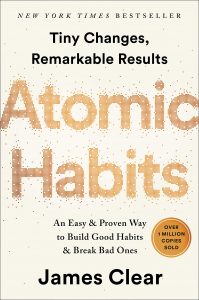
Yep. And it’s simple, a lot of this stuff is just simple stuff, but it doesn’t mean that it’s easy, it really doesn’t. Like I was listening to James Clear talk to Josh Peck on his podcast Curious, and James is the author of Atomic Habits, right? And he said that, if I remember correctly, and I might butcher this a bit, but he said that one of the things that keep people from pursuing habits they know they need to pursue is the pull of the crowd, it is wanting to be with the crowd to do what the crowd is doing. Because we do have that, humans are social creatures, and we seek approval, and it’s really hard to break from that. And what’s interesting is that being present is almost becoming a habit, or quality, or a skill that pulls you away from the crowd. I was talking to my daughter, and she was like, “I’m having a really hard time concentrating, my attention span is low,” I’m like, “That’s because you’re watching a lot of TikToks, which are one-minute long and you scroll, and you scroll, and you scroll. It’s a given.” And she goes, “I don’t want to quit watching TikToks,” and I said, “I don’t think you should, dedicate time to that, but then be able to pull yourself away from that.”
Cal Newport and I talked about this on my episode where he was for Digital Minimalism. When I share things on Facebook, I use the extensions all the time to share things on Facebook. So if I see a post, I click the thing, I type in what I like, because Facebook makes you populate it before because it wants you to go on Facebook to do it. And I share it, and some people are like, “But if you don’t go on to the site and share it, then you’re not going to get the juice,” and it’s not about that. What’s more precious to me? My attention to be able to go there and move back to what I was doing or to go into Facebook and see the endless scroll of things?
Like you’re stuck in the candy shop. Here’s an easy one that all of us can implement immediately. I get in the habit of doing this if I need to message somebody on Facebook, let’s say I’m on my computer, I will go to messenger.com, not the facebook.com, and that will remove all the distractions of the newsfeed. So I only see the messenger interface and be able to message the person or check messages. That is just a super easy tip that everybody can benefit from.
And it’s one of the weird things that Facebook did to actually pull people off the platform that I was surprised that they did like to actually create a separate platform. I mean, obviously, it’s to serve ads, like individualized ads to people, and I get that they can personalize the ads a little bit more. But that was surprising to me. The same thing with Instagram, the difference with Instagram is the scroll, for Instagram is a bit different, Twitter, same thing, so you can dedicate time to social media, feel free, right? If you’re doing a Pomodoro Technique, you could say, “Okay, I love the Pomodoro Technique. I’m gonna do four-five minutes cycles, and then the big 25-minute break, that last cycle will always be 25 minutes on social media.” That’s fine, at least you get three other cycles of 25 minutes doing something else. Plan it; it’s okay to orchestrate that stuff because they’re already orchestrating the experience for you. So you might as well orchestrate what you want to get out of it.
Just about intentionality.
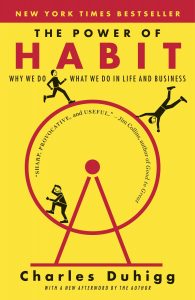
Exactly, intentionality. I don’t want to be distracted by Facebook, but I still want to be able to use it. Okay, how do you make that happen? And then, again, you’re creating new neural pathways, as you said, it gets to the point where it’s like, “Oh, this is just what we do.” I remember reading The Power of Habit, where they talked about the gentleman who was suffering from Alzheimer’s, and he went out for a walk for a whole bunch of days. And then one day he got out of the house, and his wife didn’t know where he was. And he just took a walk on his own and found his way home. That’s because the basal ganglia knew where to go, it was so embedded. It’s the same reason you get in a car for the first time, and you’re learning something, you have to adjust a mirror, put on a seatbelt, and go through all the steps. But when you and I get in a car and out for a drive, we just go because we’re already doing that stuff, or it’s already set for us.
It’s unconscious competence.
Right. And you can get to that point with so many things, provided that you do it consistently enough to give yourself. And the more conditions you have like, “I will do these steps at this time on these days,” those conditions make it stick harder. If you want to remove a condition, that’s fine. I journal every single day, and journaling is part of my nighttime routine, but that doesn’t mean I do it at the same time every night. And again, it’s all about stacking habits, things like that. And by the way, if you want to adopt something like this, you should definitely tether it onto something that’s already well established because it’ll start to go along for the ride.
Yeah, that’s called habit stacking.
Yeah, these are things that you can do, BJ Fogg talked about it, so is James Clear, and Charles Duhigg. Basically, they have a greater chance of succeeding because they’ve already got something to hold on to, go with, and try to make them connected. If you’re like, “I want to exercise every single day. Oh, I’ve already got that in play. I want to start meditating. Well, meditation is a good thing to do, maybe before or after, okay, I’ll tether it to this or whatever,” right? Like you can do that and if you say that you don’t have time. I’ll throw another nice quote out there for you from ancient times Lao Tzu saying, “Time is a created thing. To say ‘I don’t have time,’ is like saying, ‘I don’t want to.’” So there you go.
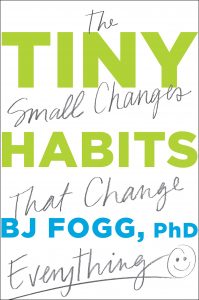
That’s great. And you mentioned BJ Fogg, and his research is phenomenal. And he’s the guy who came up with the whole concept of Tiny Habits that Atomic Habits is based on. So I highly recommend folks go sign up for his course. It’s like a free coaching program, three very tiny coaching program; it’s at tinyhabits.com/join. It’s a five-day program, I did it two weeks ago. And then I managed to add to habits stack on doing bicep curls after I do my bicycle. I’ve got an AI-based stationary bike called CAR.O.L, it’s really cool, and I had the founders on Get Yourself Optimized. So now I’m in the habit of after I get off the exercise bike, I will go grab the dumbbells, and I’ll do some biceps. So that’s just a tiny habit that I can add to an existing habit and then on to that habit I can add another one like push-ups or squats or something like that I haven’t gotten to squats yet, but I will. Kind of weird not being able to go to the gym, I guess.
But I like how you said that you’re going to do them bit by bit. What some people try to do, and this is a very big cautionary tale; don’t try to add 14 things at once. Studies have shown that if you try to do it bit by bit and have some patience, you’re going to be in a much better place. But if you try to do like, “I’m gonna add all these habits at once.” The likelihood of not just one of those but all of those habits failing is much higher.
Yeah, so that’s why it’s called tiny habits; you start small. If you’re not in the habit of flossing your teeth every night, attach it to an existing habit of brushing, and just commit to flossing one tooth, that’s it.
Yep. And I know that Peter Shankman, a friend of mine who’s also been on my podcast, I’ve had the pleasure of hanging out with him at a Tropical Think Tank conference a few years ago. He said that what he does is he sleeps in his gym clothes, so his pajamas are his gym clothes. Why? Because he wakes up in the morning sees himself in the mirror wearing gym clothes, he knows that he’s that much closer to working out. And so he’s already in his gym clothes, he might as well put his gym shoes on, and he might as well go for his run. And that’s how he did it. So I mean, anything that you can do. I’m not a fan of the term “hacks.” I’m really not, because the word hack – and I’m a bit of a word nerd – means to cut without care, that’s the etymology of the word. Hack means to cut without care. And I don’t think that anything that you want to do to improve your life, you should be cutting without care, I think that you need to be a bit more deliberate about it. That said, you should definitely be looking at ways to make small, tiny improvements that you can make to make the leap that much smaller, crossing the chasm that much easier to do.
Remember, intention plus attention. What is your intention, and how are you going to pay attention to it? This is how real productivity works. Share on XYeah, and another thing to that, is very powerful is to associate this with your identity, rather than just a behavior. So I am the kind of guy who doesn’t shower until I use my stationary bike. That’s a new innovation that I added a few weeks ago, maybe a month or two ago. And now I’m using the bike all the time; there would be months where I wouldn’t use the bike at all. I mean, how sad, I would go four-six weeks and not even get on it. So now I’m using it at least four or five times a week, sometimes even six. So I do shower every day just to make it clear. It makes such a difference that I’ve associated that as part of who I am, instead of just a behavior pattern. So now it’s just ingrained, it’s very powerful. And the other thing too, I learned from BJ Fogg was to engineer the emotion of shine, which is the feeling of success. So it didn’t have a name, but it is an actual feeling; it is an emotion, this feeling of success that he calls “shine.” If you’re trying to establish a new habit and there’s no shine, you’re not going to stick with it. I was using the Way of Life app, which you’d recommend, a great little app, and I stopped using it. I figured out after the fact why I stopped using it is because once I fell off the wagon on a habit, a new habit, so it’d be like check the green box every day, be nice on the chain of green until I screwed it up. No, I broke the chain now I got to start all over again there went the shine.
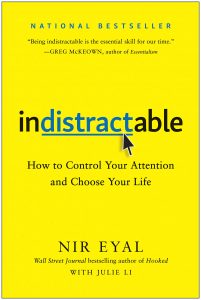
Yep, and then there’s an adage to that which is never more than once. So now when Seinfeld, because I came from a lot of the Seinfeld stuff like don’t break the chain, he wrote a joke every single day when he missed a day he goes never more than once. So even if you missed one day than you did the next day, and then let’s say you forgot the next day, at least it was no more than one. Because if there’s a two-day gap, then it’s even harder, three-day, four-day all of a sudden the shine is completely gone, and you’re feeling like you’re basically starting over. If you’ve read and I know you probably have Nir Eyal’s Indistractable.
You know, I have not read it yet, but I studied some of his stuff. I’ve had him on my podcast.
Yep, me too. It’s really good. He talks about the idea of traction, and he talks about the idea of identity. Here’s a guy who, again, speaking earlier on about social media wrote the book Hooked, and he studied that stuff. So he goes from a book that basically tells you how to get people hooked on things. And then he’s like, “Okay, well, but let’s not get a distraction.” And what he’s done with that book, which I find great is that distraction isn’t about taking you away from something you didn’t intend to do. Like, if you want to play video games for three hours, and you get pulled away from it, you weren’t distracted like you have traction in it. So distraction is the opposite of traction, right? So it’s really a fascinating read, and I love the identity-based stuff it’s really important because it’s all about like, “I am a courageous person so therefore I do these things,” or as you said, “I don’t get to shower until I’ve ridden my bike,” or “I don’t get to have a soda pop like a ginger beer until I’ve done my most important task of the day,” or whatever it needs to be. The carrot dangling can be really powerful, especially when you attach it onto something, and you get better at it. You can start small with this stuff.
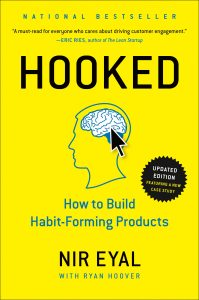
Yeah. And by gamifying it, making it seem more fun like I’m gonna stroll through the garden, sounds like fun, and then I’ll remove a weed or two when I see them because I’m gonna weed the garden, which doesn’t sound like fun at all.
Right. Because what that tells you is the garden is full of weeds, the garden has a lot of things. And the great thing is when you do that, all of a sudden, you want to keep the garden getting better because you want to have that stroll occur, as opposed to the “Oh god, I have to weed my way through the garden,” or “I have to machete my way through the garden because of all these weeds.” So to me, when you’re talking about World Productivity Day, I think ultimately it gets down to the fact that productivity is very personal and you always want to start small and build from there because you can’t be super productive out of the gate. And if you want to look at people who are successful, don’t look at them now, look at them when they started and you also don’t often get to see the process, you just get to see the product. So keep all of that in mind as you’re moving forward because a productive day could be hanging out with your kids. A productive day could be reading through your journal entries to see if you’re going down the right path. A productive day could be hitting the bike and then getting in the shower and saying, “Look what I did today,” and then celebrating that stuff is really important too. That’s why I believe journaling is one of the most productive things you can do.
Yeah, super important to celebrate your wins, your micro wins all the successes, so that reinforces in your brain that you should keep going and also don’t compare yourself to others. Compare yourself to you because the people who you think are overnight successes were an overnight success ten years in the making, you just don’t have the view into what it took for them to build that momentum that they have now.
Absolutely. Well, we should go back to being productive on our own in a little bit here. What do you think?
Yeah. So thank you so much. If you had to share one last nugget of the gold that we haven’t talked about, what would it be and then, of course, your contact details if somebody wanted to work with you?
Productivity isn't about doing as much as you can in a day. It's about doing the right things for sustainability. Share on XSo I think that a lot of people, when they look at their to-do list, they try to work it sequentially or by date. I want you to try something different. I want you to look at your to-do list and ask yourself is this task going to take a lot of energy or little energy and start to use that. And a simple way to do it is put an up arrow next to the ones that are going to take a lot of energy and a down arrow next to the ones that aren’t going to take a lot of energy and if you can’t decide whether a task has high or low energy implications, don’t put an arrow next to it, because there’s no such thing as regular energy. It’s not deliberate enough and work your tasks that way. I’m a night owl, so I’m very attuned to doing high energy tasks later in the day and low energy tasks earlier in the day. So tackle your to-do list by looking at your energy levels, because we often don’t take those into account when we’re doing things and especially when you’re working from home, and you don’t have the boss lurking over your desk. And you’ve got the benefit of a bit of flexibility there, that could be a really positive way to tackle your to-do list. And finally, even though the book is not out yet, the plans are still afoot to deliver it either late 2020, early 2021 just go to productivityist.com/book and sign up for the book updates. You’ll also get other emails everyone still on to keep up with my work there. I’d love to be able to share this with you on an ongoing basis.
Yeah, so productivityist.com/book and the podcast is A Productive Conversation, so you can learn more about the past episodes and guests by going to productivityist.com. You can also just google it or in your favorite podcatcher app, put in A Productive Conversation, and subscribe. While you’re doing it might as well go to Get Yourself Optimized, which is my podcast. And I love that tip that you just shared about giving a tag to low energy tasks and high energy tasks and then just tag all these different things. That’s what I’ve done based on your coaching. You’re a great coach. So it’s another thing too, is that folks could hire you to get coaching from you.
Yeah, they want to email me directly. My email is as*****@*************st.com. And I also have a little mini-course that’s kind of speaking of tiny little actions you can take every day. It’s called 30 days of Time Crafting, it’s a $5 course, so if you go to productivityist.com, you’ll see all that in the header in the upper menu and you can navigate your way throughout the podcast, the book, the course, and all that stuff is there. What better way to do it than world productivity day, right?
That’s right. Take powerful actions. Thank you so much, Mike.
And thanks for organizing this. I really appreciate it. I’m glad that we took the time to do this today.
Yeah, this was fun.
Awesome.
All right. I hope you guys got some value. Have a great rest of your World Productivity Day.
Take care, everyone.
Links and Resources
- Mike “The Productivityist” Vardy
- Facebook – Mike “The Productivityist” Vardy
- Twitter – Mike “The Productivityist” Vardy
- Instagram – Mike “The Productivityist” Vardy
- Youtube – Mike “The Productivityist” Vardy
- as*****@*************st.com – Email Mike
- A Productive Conversation
- 30 days of Time Crafting
- The Front Nine
- TimeCrafting
- The Art of SEO
- Google Power Search
- Social eCommerce
- How to Live on 24 Hours a Day by Arnold Bennett
- Atomic Habits
- The Power of Habit
- Tiny Habits
- Indistractable
- Hooked
- Laura Vanderkam – The Productivityist Podcast episode
- Cal Newport – The Productivityist Podcast episode
- Mike Vardy – previous episode
- Donny Epstein – previous episode
- BJ Fogg – previous episode
- Ratna Singh and Ulrich Dempfle – previous episode
- Nir Eyal – previous episode
- Marketing Speak
- Netconcepts
- Laura Vanderkam
- Second-Order Thinking
- O&O Academy
- Gangsta Gardener on Masterclass
- Project Gutenberg
- Green Lantern
- Managing Happiness
- Civil Disobedience by Henry David Thoreau
- METAL
- Doug Fraser
- What We Do
- Ep. 107 | James Clear – Curious with Josh Peck
- BJ Fogg
- James Clear
- Charles Duhigg
- Lao Tzu
- Tiny Habits Coaching Program
- CAR.O.L
- Peter Shankman
- Way of Life app

